A Personal Account from the Corona Hotel: "There Are Many People Here, Eager to Return Home"
When Leah married off her son about a month and a half ago, she didn't anticipate that during the week of celebrations she, her husband, their children, and the bride's family would contract the coronavirus. Now, after two weeks in the Kinar Hotel, she shares her impressions and admits: "We all want to go home."
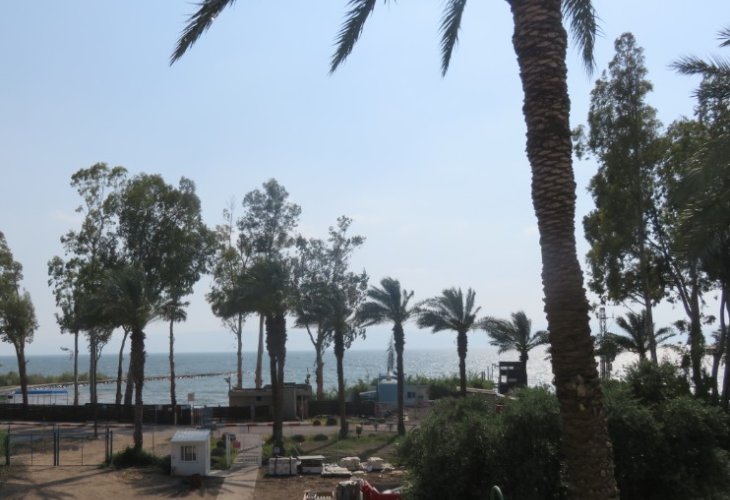
"We got to taste everything that the corona era has to offer," says Leah with a smile. We speak with her while she is staying at the Kinar Hotel with her family due to corona infection. "We held a wedding under restrictions, my daughter gave birth during corona times, we were in full isolation at home, and for the past two weeks we've been in the Kinar Hotel – we tasted everything possible".
Her voice sounds optimistic, but as the conversation continues, it becomes clear that the period they went through was not simple at all.
"Our story started about a month and a half ago, at my son's wedding," she recalls. "Like all families who had weddings during that period, we experienced a lot of stress. Initially, it was mentioned that 100 people could attend, but quickly it became clear that the law wouldn't allow more than 50, and then it dropped to a minyan (quorum of 10)... In the end, we held the wedding in a villa in the Ramat Shlomo neighborhood, and we are very grateful to the people who dedicated their home for us."
"Apparently, the infection wasn't at the wedding," Leah emphasizes, "which is also why, thank God, none of the attendees, especially the grandparents—for whom it could have been really dangerous—got infected. Most likely, we got infected towards the end of the *sheva brachot* (week of blessings), even though it was celebrated within the small family circle. The infection was widespread—our family got infected, the bride and groom got infected, the bride's parents got infected, and so did the married siblings from both sides. We found out on Saturday night when the groom received a message that he needed to isolate, but very quickly, we started feeling symptoms and realized many were sick among us."
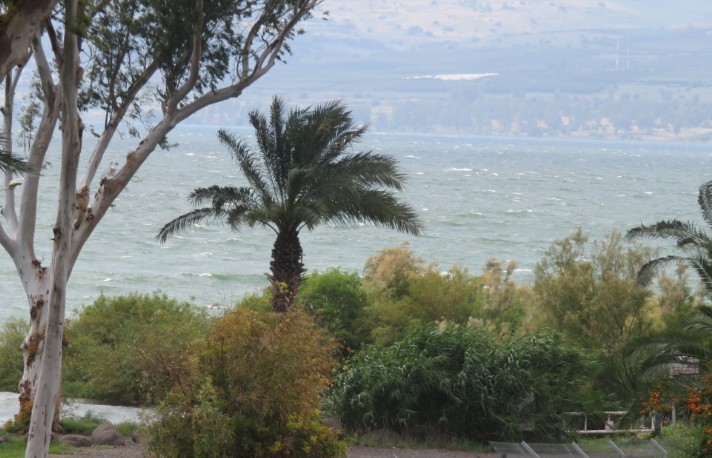
"We Decided to Move to the Hotel"
You're recovering from a wedding, sick, and also need to prepare for Passover. How did you manage during that time?
"It really wasn’t easy. Besides, those days, my daughter, who gave birth the day before the wedding, with another toddler at home, was also with us. Most of us were feeling quite unwell. For instance, I experienced a weakness I never knew before; I would clean for Passover for an hour and then fall asleep for two. Work another hour and fall asleep again. The most interesting symptom we all experienced was a complete loss of smell. We worked with bleach and St. Moritz without smelling anything. Our sense of taste also vanished, and for some, it hasn't returned yet. Sometimes we felt like the original serpent, punished by having dirt taste like any other food."
Leah notes that they spent Passover at home, but the day after the holiday, they decided to move to the Kinar Hotel.
What made you decide on that, particularly at this stage?
"Honestly, on the holiday eve, we burdened our neighbors and acquaintances with shopping and help, which made us uncomfortable continuing to rely on them. We also wanted to try something new after three weeks of house isolation and seeing no end. That led us to decide to move to a hotel, and after coordinating with the health fund, MDA, and the Home Front Command, we were told they'd come to evacuate us on Thursday."
The family was ready and packed as agreed, but according to Leah, the ambulances only arrived on Friday at 3:30 PM. "It was a slightly surreal scene," she describes. "Three ambulances arrived in front of our house, and we walked out to them in a convoy, well protected and equipped with suitcases and items to suffice us for an unknown duration. Initially, we feared arriving too close to Shabbat entrance due to the late departure, but we didn't account for the ambulance drivers using the maximum speed permitted by law and driving at full speed. We felt like on a jeep tour. Initially, it was enjoyable, but as time passed, the feeling was that all our internal organs were turning upside down. I wondered how real patients experienced such evacuations, and honestly, I pitied them."
They reached the Kinar Hotel well before the start of Shabbat but were held up for three-quarters of an hour at the entrance until each one was identified by the Home Front Command, allowing them entry. "We were stunned when entering the hotel grounds and finding hundreds of people, in my estimation close to a thousand, most of whom are from the ultra-Orthodox sector. Eventually, we entered our rooms twenty minutes before the candle lighting time," Leah shares.
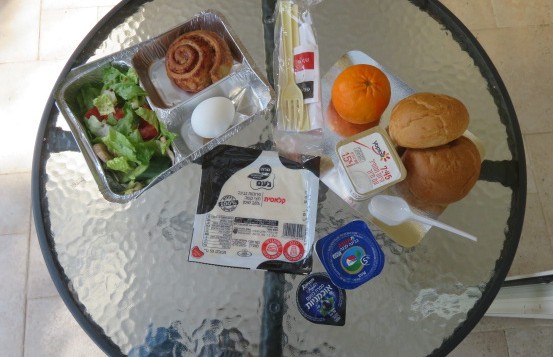
Not Hotel Conditions
After three weeks in isolation between four walls, did you find yourselves in the expanses of a hotel – does it feel like liberation?
"To some extent, that was indeed the feeling," Leah agrees. "Suddenly you can leave the room and meet people. Add to that the fact that everyone is walking around without gloves and masks except, of course, the staff members who are anyway distant from us and not allowed to get close. The hotel tries to give us the maximum and is attentive to our needs—we understood it's not the same everywhere—and Kinar is one of the good places. But still, it doesn't feel like a hotel stay. Room cleaning is our responsibility, and laundry was done by hand in sinks with laundry shampoo provided to us in the first week. Later, the owner of the 'Tzoref' store network arranged with the importers, and we received four washing machines. Of course, the queue for laundry is one of the entertainments... They provide us with toilet paper, coffee and tea for the rooms, towels, and linens, but not everything we want, and people rely on their relatives outside to get deliveries of sweet drinks, vegetables, and candies. The food provided is indeed the known tasty and good food of Kinar, but we don't eat it in the dining room; instead, it's eaten in rooms, which lessens much of the experience. It's also given to us in takeout containers placed behind the door. Naturally, the quantity and variety are less than what's typically served in hotels. For instance, we don't eat soup, not even on Shabbat, because there's no safe way to get it to the rooms, but on the other hand, we occasionally enjoy coconut or sesame snacks or falafel options that come as meal substitutes—it's evident they're thinking of us. We joke often about becoming 'manna eaters'—opening the door each morning to find the meal waiting for us."
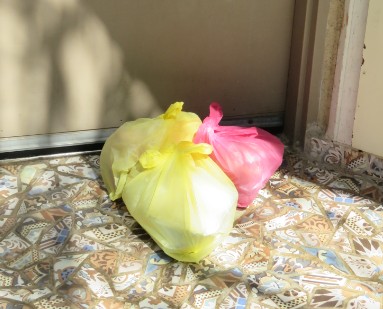 Packaged 'manna' bags at room entrance
Packaged 'manna' bags at room entrance"On this occasion," Leah adds, "we want to convey the gratitude of all the hospitalized to the hotel's management, the dedicated staff working around the clock, and the Home Front Command led by Wasim Hamed for the respectful treatment and the desire to do the best possible under the current conditions."
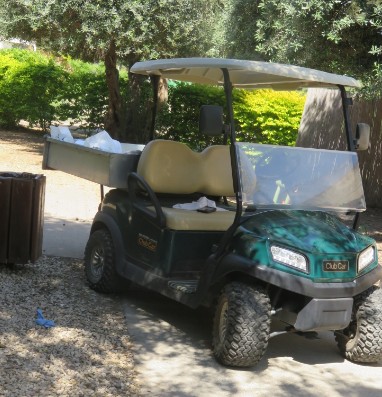 Supply vehicle
Supply vehicleRegarding the stay in the hotel's open areas, Leah mentions they don't have the ability to enjoy open public spaces like the lobby or the pool. "There is one synagogue and one hall," she details. "Additionally, we have the lawns outside, which are a real rescue. We can walk freely on them and even climb to look over the Kinneret, which certainly looks fuller than in any given year. We breathe fresh air, and the children can ride pedal cars and bicycles."
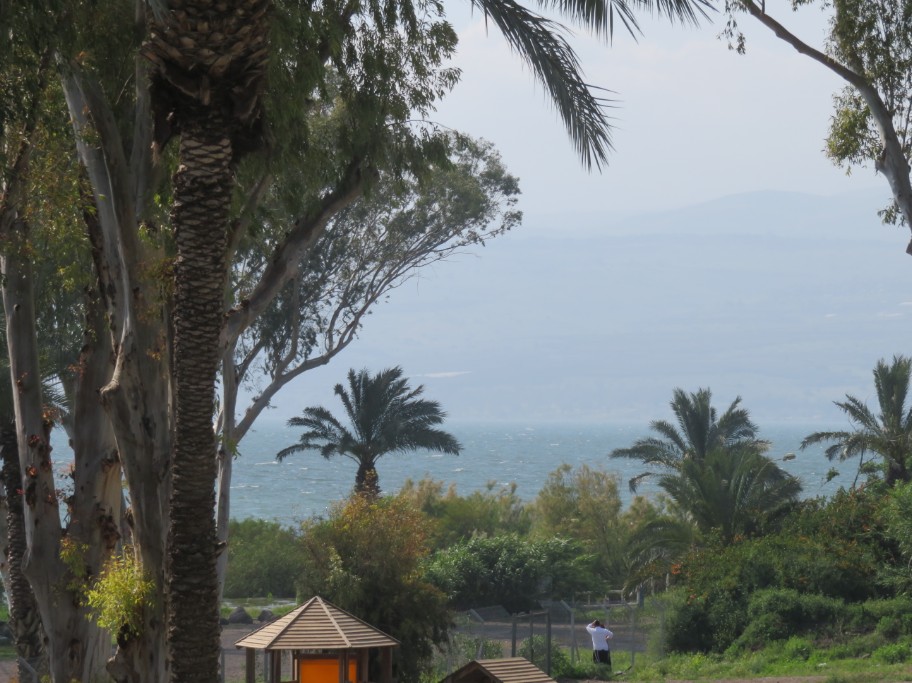 The full Kinneret within arm's reach - but behind the fence (we have no access, and to see it requires climbing)
The full Kinneret within arm's reach - but behind the fence (we have no access, and to see it requires climbing)The people around you, do they look sick? Can you tell they're experiencing corona symptoms?
"Almost not. Most people look completely healthy. At least those walking outside. A small part was evacuated as part of the directive allowing evacuation of 'mixed' families where only some family members are ill. Occasionally, coughs can be heard, indicating that these are still people whose bodies are dealing with something, and sometimes scenes of shortness of breath are seen, but even those experiencing symptoms are considered in mild condition. Those in worse condition are not in hotels but hospitals."
And what do you do during these long and monotonous days? How do you fill them?
"It's really boring here," Leah admits, "but there are families who took the initiative, primarily the Israel family—hospitalized here—who organize the 'Kinar Yeshiva,' 'Father & Sons' programs, and events for teens. There are women who organize evening gatherings and various local activities. I must commend the ultra-Orthodox community in Tiberias that genuinely took us in and embraced us warmly. Rabbi Derli, who heads the community, was himself hospitalized during Passover in the Lavi Hotel, and he saw firsthand the challenge and the great need for occupation, especially for children. As well as Rabbi Ohana’s family—the community's representative in the Tiberias municipality. They send us sweet shipments of books, candies, and prizes. I personally asked for their help in setting up a library here, and indeed, they sent us reading books. The Ezras Cholim organization also contributed, as did private individuals. We thank everyone sincerely."
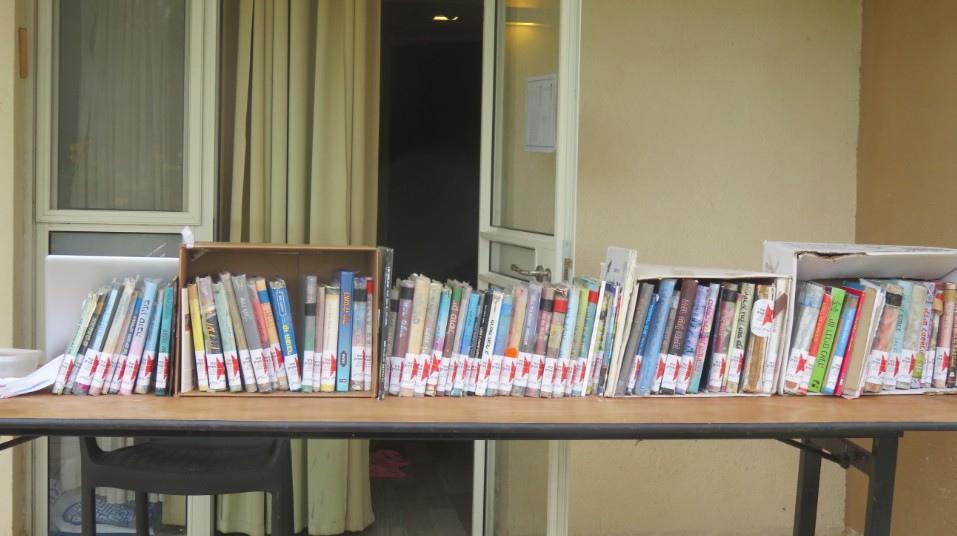
Seeing Hashem with Our Own Eyes
Leah emphasizes that precisely while she's in the hotel and hears the stories around her, she sees the direct private supervision. "You can see that from above, each person was directed to undergo exactly what they were destined for, in a manner intended for them and at the prescribed dosage. You can't outsmart or argue with the plans of the Ruler of the Universe."
Does the feeling hold that everyone is counting the days, eager to leave, or are they enjoying every moment?
"On the whole, no one suffers here," Leah highlights, "everyone also knows that the only alternative they have is complete isolation at home, so the hotel is obviously preferable. One must understand that isolation of corona patients at home is much stricter than one might imagine since a corona patient in isolation can't even go out to throw garbage. At my daughter's home, for instance, more than ten garbage bags accumulated on the balcony corner. Neighbors have informed her not to dare step out to throw them in the main bin, and she had to wait patiently until a special container was dispatched by the municipality and placed under her home to directly collect the garbage bags. Home isolation also means you need constant help from neighbors and acquaintances for shopping and errands. There are many kind people, but it nonetheless weighs and burdens. Not to mention that people are apprehensive about receiving things you've touched, so for instance, when you need to transfer money to them for the shopping, it becomes almost impossible... Therefore, as I've mentioned, staying in a hotel while being sick with corona is definitely preferable in many respects. I've already heard several people around me who, when wished a 'complete recovery,' responded jokingly: 'Don't curse me.'"
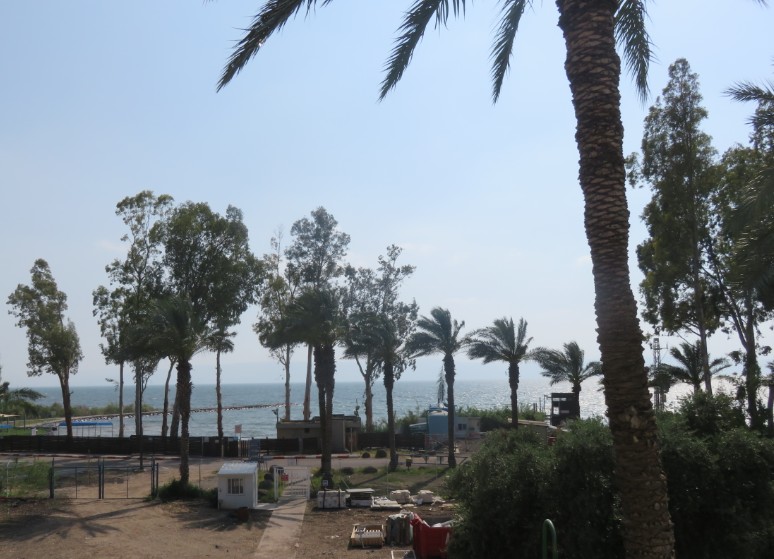
A child from your hotel was evacuated in a severe state last week, do you know her?
"No, we didn't know 'Hadas bat Ora,' but very soon we heard about the case, and at some point, while queuing for laundry, someone encountered the girl's mother and got an update on her condition. Consequently, she quickly rallied a large group of women, we sat together, held a *seudat amens* (feast of blessings), and recited Psalms. We tried to extend support and help as much as possible since it was a family that had a tough week, with the father in the hospital with the daughter and the mother with the other children at the hotel. Thank God, I understand that in recent days her condition improved greatly, and she has already returned to full consciousness."
And what about your situation? You mentioned you've been at the hotel for two weeks, in addition to three weeks of being sick at home. Haven’t you recovered yet?
"At this stage, we all received one negative test result and are now awaiting another test. We aren't developing expectations yet since we've heard of quite a few who tested negative and then positive, but we would certainly be happy if the second test is also negative and we can be free. "Only we shall probably need to arrange transportation to take us home," she adds with a smile, "since the ambulance that brought us here won't be taking us back, after all, we’re already well."

